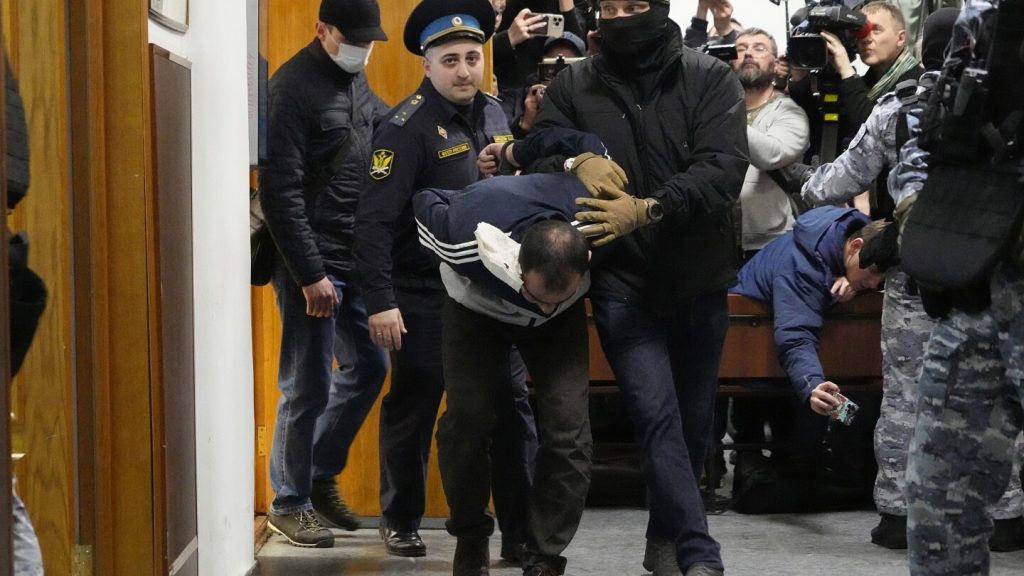The aftermath of a mass shooting at a Moscow concert hall has left Russia reeling, with President Vladimir Putin vowing to hunt down the masterminds of the attack that killed 145 people. Despite warnings from the U.S. of an imminent threat, the security agencies failed to prevent the assault, leading to criticism of a crackdown on dissent distracting them from real threats. The attack has set the stage for harsher rule under Putin, with calls for the restoration of capital punishment and the deployment of hit squads to assassinate Ukrainian officials.
Putin and his lieutenants have linked the attack to Ukraine, despite vehement denials from Kyiv and claims of responsibility from an offshoot of the Islamic State group. The arrest of four suspects near Ukraine has been used as evidence of Kyiv’s involvement, though the authenticity of their confessions has been called into question due to signs of severe beatings and torture. Russian security forces have a history of torture allegations, but in this case, no official condemnation has been given for the brutality inflicted on the suspects following their arrest.
The treatment of the suspects in the aftermath of the attack has raised concerns about Russia slipping into a more ruthless era. Video evidence has emerged showing the suspects being brutalized by security forces, with one suspect reportedly having his ear cut off during interrogation. Calls for extrajudicial killings of Ukrainian officials and the restoration of the death penalty have sparked debate within the Kremlin, with some officials expressing hesitation. Opposition to these measures has also been voiced, citing the dark history of executions in the Soviet era.
The Kremlin’s response to the attack, including the tolerance of brutal treatment of suspects, has been seen as a show of terror and intimidation. Critics argue that the harsh measures are aimed at stifling dissent and rallying support for the war in Ukraine. With senior lawmakers calling for extreme actions and Putin’s allies endorsing violent repression, there are fears of a return to a more oppressive regime reminiscent of Stalin’s Great Terror in the 1930s. The disregard for basic rights and humanity in dealing with suspects has raised alarm bells among human rights groups and observers.
As Russia grapples with the aftermath of the deadly attack, the focus shifts to how the government will respond to the rising calls for extreme measures. The push for harsher crackdowns and violent reprisals against perceived enemies signifies a dangerous turn towards authoritarian rule. The current climate of fear and intimidation, coupled with the lack of accountability for security forces, paints a bleak picture for the future of human rights and freedoms in Russia. Time will tell whether Putin’s highly orchestrated electoral landslide will lead to a more oppressive regime or if there will be pushback against the increasing authoritarianism.


